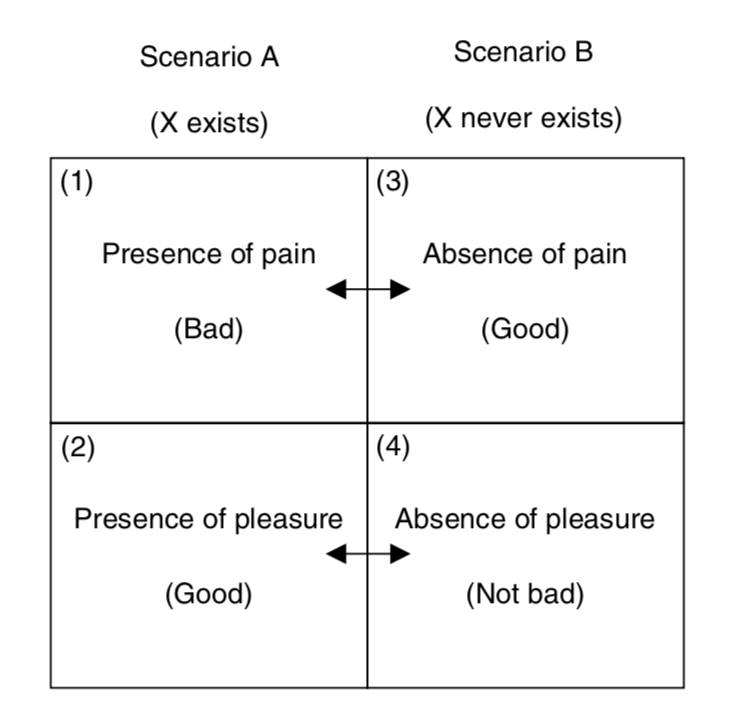I’ve some doubts regarding the epistyle of David Benatar's thought, the “asymmetry of pleasure and pain”. In Better Never to Have Been: The Harm of Coming into Existence he writes that:
Both good and bad things happen only to those who exist. However, there is a crucial asymmetry between the good and the bad things. The absence of bad things, such as pain, is good even if there is nobody to enjoy that good, whereas the absence of good things, such as pleasure, is bad only if there is somebody who is deprived of these good things.
Everything is well explicated by his famous square
(3) the absence of pain is good, even if that good is not enjoyed by anyone, whereas (4) the absence of pleasure is not bad unless there is somebody for whom this absence is a deprivation.
We can put it also this way:
a) (3) If the hypothetical person x will never be born, she can’t experience any bad things (and this is good).
b) (4) If x will never be born, she can’t experience the lack of good things. (and this is not bad)
So, there’s an asymmetry between good and bad that will always hangs on the side of bad things and “coming into existence is always a harm”. It looks very powerful and sound. But we can also put (a) more like (b), this way:
c) (3) If x will never be born, she can’t experience the lack of bad things (and this is not bad).
If we put the same specific weight on “good” and “bad” like he does, the asymmetry disappears. Later in the book he writes that
the absence of pleasure is not bad unless there is somebody for whom this absence is a deprivation.
But we can also state that "the absence of pain is not good unless there is somebody for whom this absence is a good thing". Have I misunderstood?

